
Last season, coming quite by sweet surprise, Carey Price affirmed many good things written about him when he led the Hamilton Bulldogs on an astounding run that climaxed with a Calder Cup win.
As the 2007-08 season approached, opinions were divided whether Price would or should crack the Canadiens lineup. The high profile rookie went beyond early appraisals, and not only bumped a solid Cristobal Huet from his path, he has greatly helped his team win the Northeast division after Huet was traded away.
I believe his efforts ought to earn him a Calder of a different kind, that of NHL Rookie of The Year.
Understandably, Price was hardly seen as being in the running all season for this award, while other excellent rookies consumed the spotlight. Much has changed in this picture since February 26th, and in my esteem Price has nudged out the other candidates by a slight margin.
The names mentioned along the course of the season are Toews, Kane, Backstrom, Mueller, and more recently Cogliano and Gagner of Edmonton. Each of these players have enjoyed great initial campaigns and there is little doubt that they will be stars in the league for years to come.
In my choosing of Price over the other six as the best new face of '08, I have compared achievements and considered that what the Canadiens goalie has done ranks superior.

As of this writing, with 2 games left in the season, Chicago, Washington, Phoenix and Edmonton all look to be outside the post season picture. While these 6 players have assumed important roles on their teams, their performances were likely not as crucial to their teams fate as those of Price were in the Canadiens scheme.
It is always difficult when comparing a goaltender's performance to that of forwards or defenseman. Four seasons ago, I prefered Michael Ryder over Andrew Raycroft and used a reasoning that opposes what I am about to discuss here.
This years rookie crop contains but two 20 goal scorers in Toews (23) and Mueller (22), so it can be said that there is no runaway winner posting Ovechkin or Crosby like numbers in a first full campaign. Toews might have made this point moot had he not missed 18 games due to injury, and he would still be my second choice behind Price, followed closely by Backstrom.
Backstrom (67) and Kane (69) have put up solid point totals, but like Kane, Mueller and the two Edmonton forwards, they stepped into thin lineups where their contributions were required immediately.
It should not be seen as a knock against those players performances, but rather a perspective into what led to their respective contributions.
It is easier to accomplish those kinds of numbers and have success on teams where depth enables top line ice time from the start. Forwards are handed it, whereas goaltenders must earn it while at the mercy of their team's weaknesses.
In other words, what helps forwards succeed in this case, is contrary to what helps goaltenders. Goalies play a whole 60 minute game, and in Price's case, can face an average of 30 shots per game.
 Another way of looking at the difference in comparing the positions is by examining how good plays and errors come into the statistical point of view.
Another way of looking at the difference in comparing the positions is by examining how good plays and errors come into the statistical point of view.When a forward does something very well, such as scoring or setting up goals, he earns a point. If he makes a mistake on the ice that leads to an opposition goal, he is simply docked by a minus mark. Players gain a plus stat by simply being on the ice when a goal is scored, regardless of how much they figured into the play. Forwards are not tagged with a won and lost record, the goalie and team are. Goals and assists, once earned can never be taken away.
Stats are not so cut and dried with goaltending, as they can only affect the defensive part of their team's outlook, and cannot factor into the offensive. Goalies do not get a minus stat - when they make an error, it ends up behind them in the net. The goal against stat can never be wiped out by simply being on the ice for their team's next goal. Goaltenders can make 9 great saves out of 10 shots, but the degree of difficulty and accomplishment affect no stat other than a goals against average or a save percentage.
It might be a question: How many goals saved is worth a goal scored? Either counts for one on the scoreboard. A forward might get three shots nightly at affecting the outcome of a game offensively, while a goaltender can face 30 shots per game and cost his team a win with one sloppy play.
The risk involved and the margin of error for goaltenders are much slighter and higher. Coaches are willing to let players play through rookie mistakes that will be corrected in time. Coaches can ill afford to give rookie goaltenders similar slack.
 This season, Price has passed his tests so well, his team made room for him to play more often. His season has been one of adjustment and increased responsability. The ice cool goaltender, who has thrived under the pressure and burden of comparisions to greats such as Ken Dryden and Patrick Roy is on the verge of equalling Roy's first year win totals.
This season, Price has passed his tests so well, his team made room for him to play more often. His season has been one of adjustment and increased responsability. The ice cool goaltender, who has thrived under the pressure and burden of comparisions to greats such as Ken Dryden and Patrick Roy is on the verge of equalling Roy's first year win totals.Some feel that it is perhaps unfair to Price, to weigh in with such heady comparisions to Habs greats between the pipes. Prior to the beginning of the season, those comparisons were baseless. Both goalies had begun their careers as Stanley Cup and Conn Smythe winners while Price had yet to play a single game.

With this current regular season almost in the books, Price is well on the way to earning a fairer measurement. Here's how he stacks up against the best Canadiens rookie goaltenders of the past 40 years.
* Price, at 20 years of age, has won 22 of 39 starts.
* Jose Theodore in 1998, at 22 years old, won 20 of 53 starts. The Calder winner was Sergei Samsonov (22-25-47).
* Patrick Roy in 1986, at 21, won 23 of 47 starts. The Calder winner was defenseman Gary Suter (18-50-68)
* Steve Penney in 1985, at 24, won 26 of 54 starts, and had previous playoff experience. Calder winner? Some guy named Mario (43-57-100).
* Rick Wamsley in 1982, at 23 years old, won 23 of 38 starts. Dale Hawerchuk won the Calder (45-58-103).
* Wayne Thomas in 1974, at 27 years of age, won 23 of 42 starts. Calder winner was defenseman Denis Potvin (17-37-54).
* Ken Dryden in 1972, at 24 years of age, and with a Stanley and Smythe already bagged, won 39 of 62 games and got the Calder.
* Rogie Vachon in 1968, at 23 years of age, won 23 of 39 games. Derek Sanderson (24-25-49) got the Calder, Jacques Lemaire (22-20-42) was runner up.
Price as you can see, fares well when compared against other rookie Canadiens goalies of the past, especially when considering his age. Keep in mind that some of these rookies, for varying reasons, were established as number one goalies on those Canadiens editions from the start of the season. Price has played the bulk of his games, as the Habs number one starter, over the second half of the season.

Here's how he lines up against his predecessors in Canadiens crease:
* The six non Calder winning goalies averaged near 25 wins apiece. The six Calder winners averaged 28 goals each, with Lemieux and Hawerchuk's total making up for the lower defenseman scores.
Now Price is hardly competing against Canadiens history for the Calder trophy. Doing such a comparison is simply an exercise in expectation, measurement, and accomplishment, for a goalie who arrived in the NHL with a franchise player tag.
The 7 other Canadiens goalies exhibit one measurement only, but how would Price stack up against other Calder Trophy winning goalies over the same 40 year time span. Here are the facts on 7 more goaltenders since 1968 who have won Rookie Of The Year honours.
* 2004 - Andrew Raycroft of the Boston Bruins: At 24 years of age, he won 29 of 57 games. He had 21 games of NHL experience in 3 partial seasons before his rookie year. His closest rookie competition was the Habs Michael Ryder with 25 goals.
* 2001 Evgeni Nabokov of the San Jose Sharks: At 25 years of age, he won 32 of 66 games. He beat out Brad Richards, who had 21-41-62 totals.
* 1994 Martin Brodeur of the Devils: At 22 years of age, he won 27 of 47 games. He beat out 33 goal scorer Jason Arnott. Hmm!
* 1991 Ed Belfour of the Chicago Black Hawks: At 26 years of age, he won 43 of 74 games - quite a rookie goalie measuring stick! He beat out a couple of guys named Jagr (27-30-57) and Fedorov (31-48-79). It wasn't even close!
* 1984 Tom Barrasso of the Buffalo Sabres: At the tender age of 19, he won 26 of 42 games. He beat out some guy by the name of Yzerman who notched 87 points. Amazing totals for a teenager, but I'd still like a recount!
* 1972 Ken Dryden of the Habs: At 24, he won 39 of 62 games. He beat out record setting Rick Martin of the Sabres, who raised the rookie scoring bar to 44 goals. The ways in which Dryden is unique - are unique!
* 1970 Tony Esposito of the Chicago Black Hawks: At 26 years of age, he won 38 of 63 games. His closest competition was Bill Fairbairn (23-33-56), remember him? I do, from a hockey card I threw in my bicycle spokes.

Measuring Price against the 7 Calder winning goalies, all with different scenarios, becomes simpler if broken down some. Just the facts!
* Six of seven winning goaltenders are at least 2 years older than Price. Five were a whole 4 years older. The exception is Barrasso, who at 19, beat out none other than Steve Yzerman with an 87 point campaign.
* Five of seven goalies were the undisputed starters for their teams all season long. The exceptions are Barrasso and Brodeur, who appeared in slightly more than half of their team's games.
* The seven Calder winning goalies won an average of 34 games per season, defeating forwards who have scored on average 30 goals per year in those seasons.
* Only 3 of the seven rookie goalies led their respective teams to division titles in those years - Raycroft in 2004, Belfour in 1991, and Esposito in 1970.
Price has led the Canadiens to the Northeast Division title by being the undisputed number one only since the February 26 trade dealine. At the time of the trading of Huet, the Habs were ( 33-21-9-75 ) three points behind the Ottawa Senators ( 36-21-6-78), but 17 games later, with an 8 point spread over Ottawa and Price as the number one goalie, the Canadiens captured the division title with a 3-0 shutout over Ottawa, with Price in goal.

For a final comparison of rookie goalie worth and achievement, here are the most recent rookie goalies to have neared or surpassed the 20 games won plateau in the last 25 years that have not won the Calder Trophy. Each goalie mentioned here has been named to the NHL's All Rookie Team at season's end.
* 2006 Henrik Lundqvist of the New York Rangers: At 24, he won 30 of 53 games. The Calder winner was Alexander Ovenchicken (52-64-106).
* 2000 Brian Boucher of the Philadelphia Flyers: At 23, he won 20 of 35 games. The Calder winner was a Mexican Alaskin named Scott Gomez (19-51-70). Rare indeed! Boucher owns the NHL record longest shutout streak as a member of the Phoenix Coyotes - over 4 games and counting! Peel that back and smoke it!
* 1997 Patrick Lalime of the Pittsburgh Penguins: At 23, he won 21 of 39 games. The stat in itself is deceiving, as Lalime won his first 17 NHL starts to set a rookie goalie record, breaking the longstanding bar of 14 wins to start a career set by the Habs Bill Durnan in 1944. Lalime would win only 4 of his next 22 games, which explains why the Calder ended up going to New York Islanders Bryan Berard (8-40-48).
* 1995 JIm Carey of the Washington Capitals: At 21, he won 18 of 28 starts. If that isn't as impressive as hell, Carey won 30 games in the AHL prior to his callup with the Capitals. He was named AHL Rookie Of The Year in 1995 as well, and almost got the NHL nod too. Peter Forsberg (15-35-50) won the Calder in a strike shortened 48 game season.
* 1993 Felix Potvin of the Toronto Maple Leafs: At age 22, he won 25 of 48 games. Despite leading the Leafs into the final four, his rookie season was outshined by Eric Lindros' debut, Joe Juneau's 102 point campaign, and Teemu Selanne's record setting 76 goal rookie year.
* 1987 Ron Hextall of the Philadelphia Flyers: At 23, he won 37 of 68 starts. Although he brought the Flyers to the seventh game of the Stanley Cup final and totally earned the Conn Smythe Trophy, he lost out in rookie balloting to Luc Robitaille (45-39-84) of the Kings.
* 1983 Pelle Lindberg of the Philadelphia Flyers: At 23, he won 23 of 40 starts. He lost the Calder to Chicago's Steve Larmer (43-47-90).
Not a whole lot of analysis is required in these 7 cases. These All Rookie Team goalies averaged 25 wins a year, while the Calder winners tallied an average of 37 goals per season. That fully explains why they did not win. Forsberg over Carey was the closest decision, but Lundqvist, Hextall, and Carey all posted seasons that in other years would have earned them a Calder Trophy.
Now these backwards glancing scenarios, you could suggest, have little to do with the argument for Carey Price winning the Calder Trophy in 2007-08.
But....if you scroll back up through all these stats and scenarios, you will find that what Price has done is absolutely unique in the history of voting for a Calder Trophy winner.
No, Price has broken no records of merit, and can lay no claim to anything stat wise that would jump out and seize consensus.
What he has achived quietly, in his rookie year, is as subtle as his demeanor.
Look at all the above rookie templates again.
There is but one goalie his age or younger that has won as many games - Barrasso in 1984.
There are no other goalies who have led their teams to a first place finish at such a young age.
Compare Price again to this season's rookie crop.
Where exactly will the remainder of them be in 7 days from now?
Can you find one case where a 23 goal scorer, or a 66 point player, has won out in rookie balloting over a starting rookie goalie on a first place team?
No?
Throw in the fact that Carey Price performs, not in a hot desert where the hockey spotlight is inexistant, not where a pair of teams are busy rebuilding with little to lose for now, and not where the NHL's leading scorer lives, but in hockey's hottest of frying pans, where the twitch of your eyebrow after a goal is analyzed as much as the angle in which you soak yourself between faceoffs with a Gatorade water bottle is.
Carey Price has taken the Canadiens to a pinnacle not seen in 16 years, with all the stress of a walk through a deserted Sunday park.
He is the NHL's 2008 Rookie Of The Year...in his subtle, no flash and unassuming style. It is no fault to anyone, if one happens to be latent in catching the drift.
Price has been named the NHL's Rookie of the month for March.
That isn't, and shouldn't be the end of it!
,










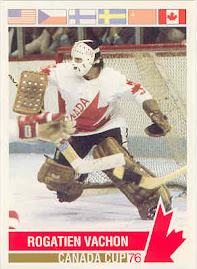
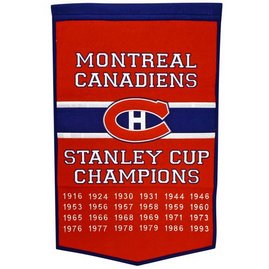







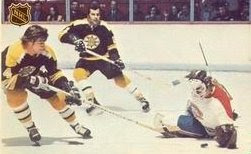























































































































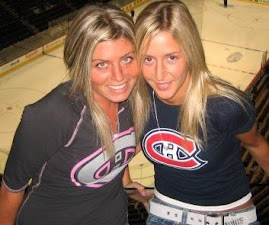
















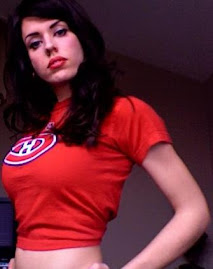

3 comments:
I'll play the devil's advocate here, since we are destined to disagree on 20-year old goaltenders. By the way, you were right about Price being ready for the NHL.
However, I feel that if Price wins the Calder, it will be due to a determined GM, the Habs improved defense and the Sergei Makarov rule.
It's easy to state that Carey Price came in and wrestled a job away from Huet now, but we all know it wasn't that simple. Price was given a chance atthe outset, despite play and NHL history pointing to Halak. Then he was given a chance to wrestle the job away from Huet and did not. When he started slumping, he was sent to Hamilton (where I believed he learned something – at least humility). During his time there, Halak was never given a chance in goal, lest he displace Carey. And, then, despite mediocre play down on the farm, Carey was re-promoted. Then something fortuitous happened, Huet had a slump. Not long after that he was traded, despite the fact at that time, there was nothing other than faith in a 20-year old that said Cristobal was not the number one. No one can question that since that time, Carey has grown into his role and shone. But, I think he owes a little bit to the Canadiens bold and stubborn GM who foresaw all this.
Next, it's all very well to invoke a team's qualities for a young forward coming through - stating that a team's general weakness will allow that player to play in more situations and score more points. But, the same thinking must then be applied to a goalie.
When Carey Price took the reins of the Habs, he had the worst statistics of the Canadiens goalies. Don't get me wrong, they were good, but Huet and Halak were better. Now, call me crazy, but could it be that maybe the Habs have three good goalies because their defense provides a system in which they can thrive?
Finally, it would be criminal to go through a whole article on goalies stepping in and doing a wonderful job on no previous NHL experince, without mentioning the goalie who has outdone Price: Dan Ellis.
Price: 47 G, 39 starts, 22 W, 12 L, 3 OTL, 3 SO
Ellis: 44 G, 36 starts, 22 W, 10 L, 3 OTL, 6 SO
Pretty similar so far. Same wins, same points. But done in less games and less starts for Ellis, with more SOs.
Price: 2.64 GAA, .918 S%
Ellis: 2.35 GAA, .924 S%
Superior stats for Ellis. Now consider that a goalie playing on a worse team putting up the same numbers as a goalie on a good team (including Wins!!!), is actually pulling off something more impressive.
Now, you were right to exclude Ellis from consideration for the Calder trophy because he is 27 years old. He is disqualified from winning even though his previous NHL experience was 1 start for Dallas prior to the lockout because of the relic of a rule that was put in place so superstars defecting form Russia and elsewhere in the prime of their careers could not come in and win.
Incidentally, the only time an older superstar came in and dominated the league, he was actually awarded the Calder trophy. Now there is no reservoir of superstars outside the NHL, the Makarov rule makes little sense.
Carey Price will probably win the Calder trophy, but Dan Ellis will probably be the best first-year player in the 2007-08 regular season.
Great minds think alike, Robert. Good work on your article.
http://www.thehockeynews.com/articles/14876-Canadiens-Blog-Price-is-right-for-the-Calder.html#
T.C. Denault
It is a fair point about Gainey's patience and that Price may have been given the benefit of the doubt.
But it isn't like Price came in with zero credentials. The guy won the MVP of the Calder playoffs at 19 straight out of junior.
That will garner a significant amount of leeway.
Plus how many times does a player get brought up from the AHL with inferior statistics? The Leafs called up Jiri Tlusty and not David Ling or Derrick Walser.
Did Jordan Staal outplay every other forward on the team to make the Pens last year? Kessel with the Bruins?
Price is the blue chip stock. He gets opportunities that others do not. You do not keep guys like that in the minors if they do not belong.
Huet, Halak or otherwise
Post a Comment